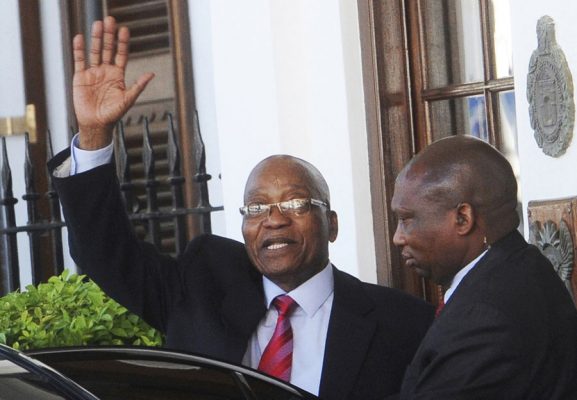
JOHANNESBURG – South Africa’s ruling African National Congress on Monday gave President Jacob Zuma an ultimatum to resign within 48 hours or face being recalled.
The National Executive Committee, the party’s highest decision-making body, is expected to finalize the issue on Tuesday and brief the nation on its decision, after marathon meetings that continued late into Monday night.
“It took a brutal 13 hours, but the ANC’s national executive committee has decided to recall President Jacob Zuma as head of state,” the Times Live news website said, citing unnamed sources in the talks.
Legal experts said that although Zuma was technically fired, the NEC cannot remove him. If Zuma digs in and refuses to stand down, he has to be removed through a parliamentary motion.
Should Zuma fail to resign, the NEC will have to decide whether to bring a motion of no confidence in Zuma to the parliament, said a legal expert who spoke on condition of anonymity.
Earlier in the day, speculation was rife that Zuma demanded a three-month “notice period”, after which he will resign unconditionally. However, that proposal was shot down by NEC members.
Zuma, who became South African president in 2009, has been involved in a series of corruption scandals.
Deputy President Cyril Ramaphosa, who took over the ANC leadership in December in a hotly contested election, promised to get rid of corruption and turn around the country’s economy.
On Sunday, he told supporters at a rally in Cape Town to mark 100 years since former leader Nelson Mandela’s birth that Zuma’s future would be settled quickly.
“We know you want closure … Because our people want this matter to be finalised, the NEC will be doing precisely that,” he said.
However, South African opposition parties on Monday called for early elections.
“We must proceed to the dissolution of parliament … subsequent to that, we move on to an early election,” Democratic Alliance party leader Mmusi Maimane told reporters, speaking alongside several opposition parties.


